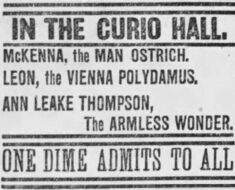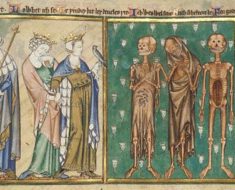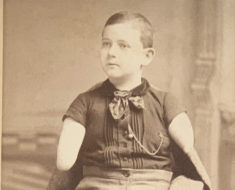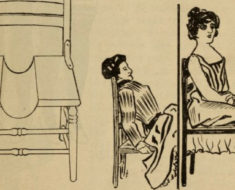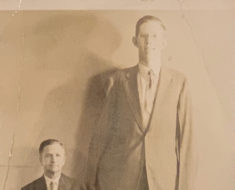Ouija boards have had much to say since their inception in the late 19th century. In 1922, one of its more unusual predictions came true: the death of Rosa and Josepha Blazek, world-famous conjoined twins.
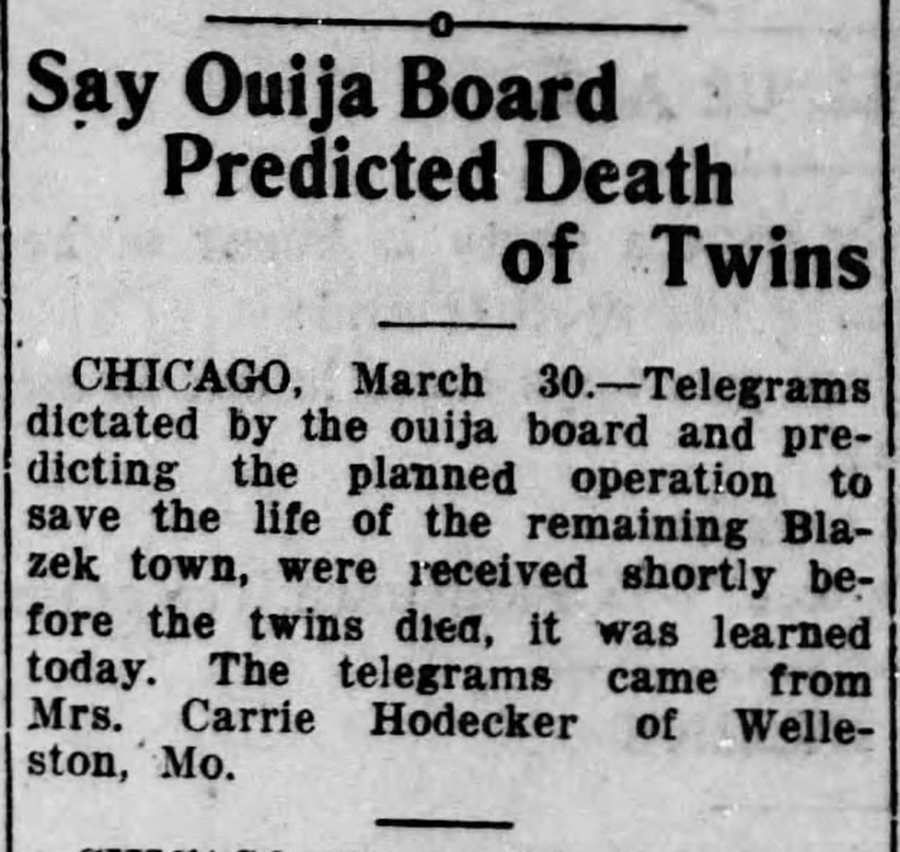
Shortly before their death on March 30, 1922, Carrie Hodecker of Welleston, Missouri, consulted her Ouija board and learned the first sister would die at 2:25 pm and 8 seconds, Central Time. The press received a telegram of the prediction, which added, “Operate at once as directed by ouija board.” The prophecy was only minutes off in its accuracy. Josepha died first at 2:35 pm; Rosa followed minutes later. The Oujia’s message was but a strange footnote to what was a life full of strange.
Rosa and Josepha were born on January 20, 1878, in Czechoslovakia, attached at the lower part of the spinal column. The conjoined twins grew up healthy and active, moving about with ease. Rosa emerged as the stronger sister and therefore was able to choose a direction and leave Josepha with no choice but to follow. Rosa was so controlling, she could actually think about walking and Josepha would take the first step.
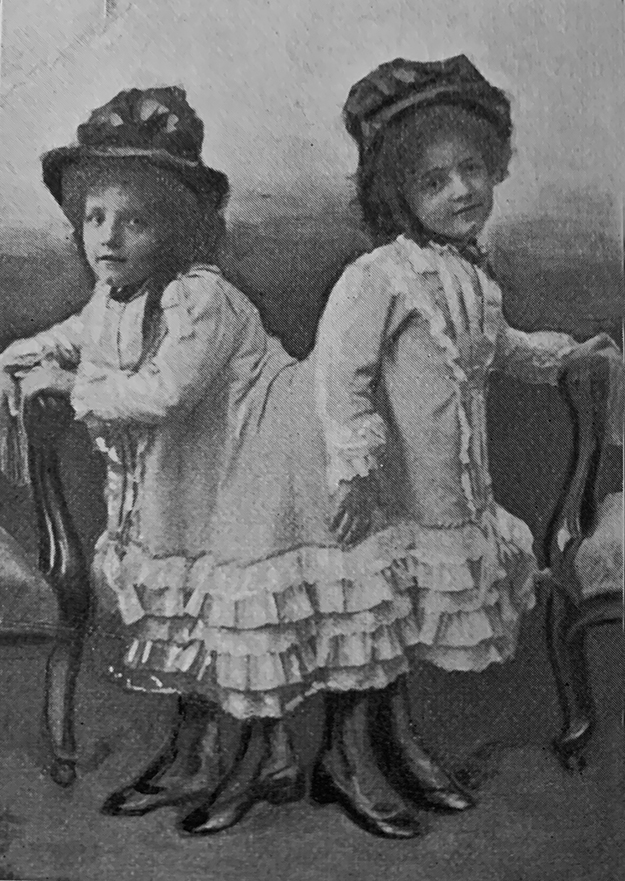
In 1891 the twins began a life of exhibition in Paris and London, billed as the Bohemian Twins. At 15, they traveled to America to appear in the 1893 Columbian Exposition in Chicago. Shortly after returning to Europe, while still quite young, the sisters wanted to marry, but wasn’t until 1910 that an opportunity presented itself. That was the year Rosa gave birth to a son, Franz, in Prague. The father wanted to marry Rosa, but her parents were not supportive. The court wasn’t either. It denied the marriage since the groom would be marrying two women, not one. Marrying Rosa would mean marrying Josepha, and that would be bigamy. The father, reportedly a captain in the German army, died in battle in 1917.
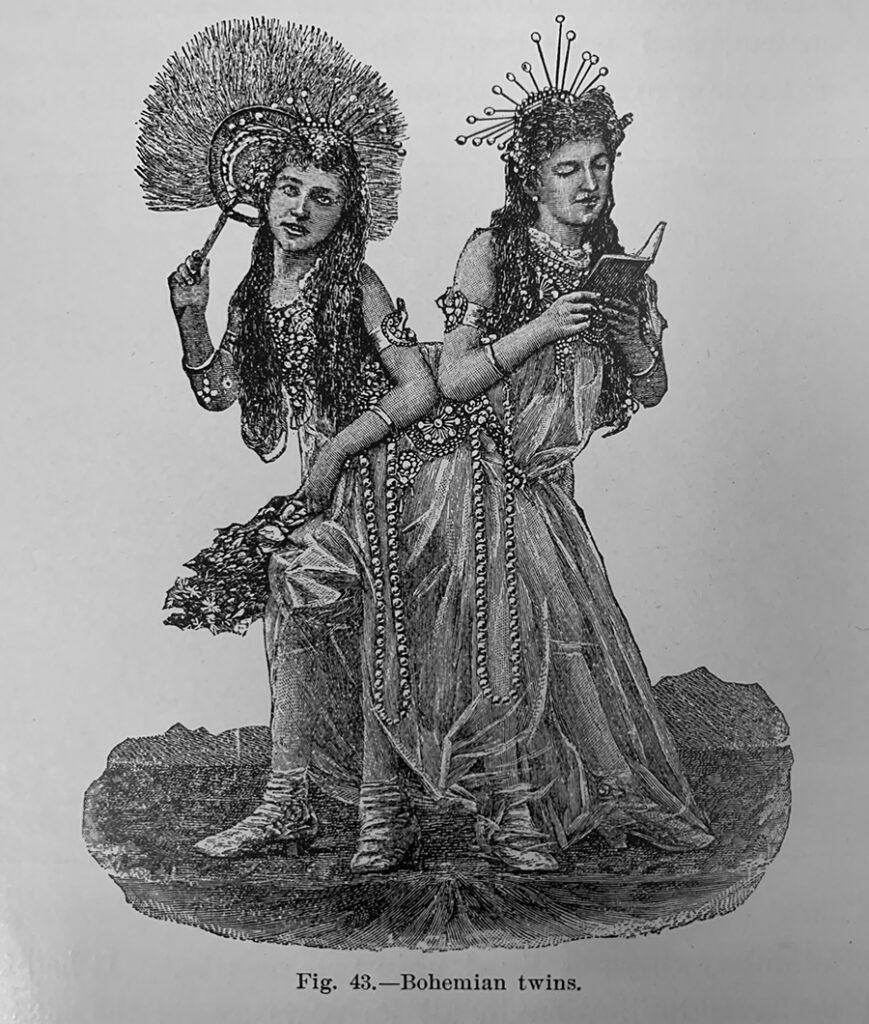
By 1922, as the twins aged, they began to tour the United States. But their trip didn’t last long. Rosa contracted a case of yellow jaundice and, in character with her controlling will, it was Josepha who fell ill soon after. The twins were treated in a Chicago hospital. One doctor suggested their heavily meat-based diet since entering the United States was responsible.
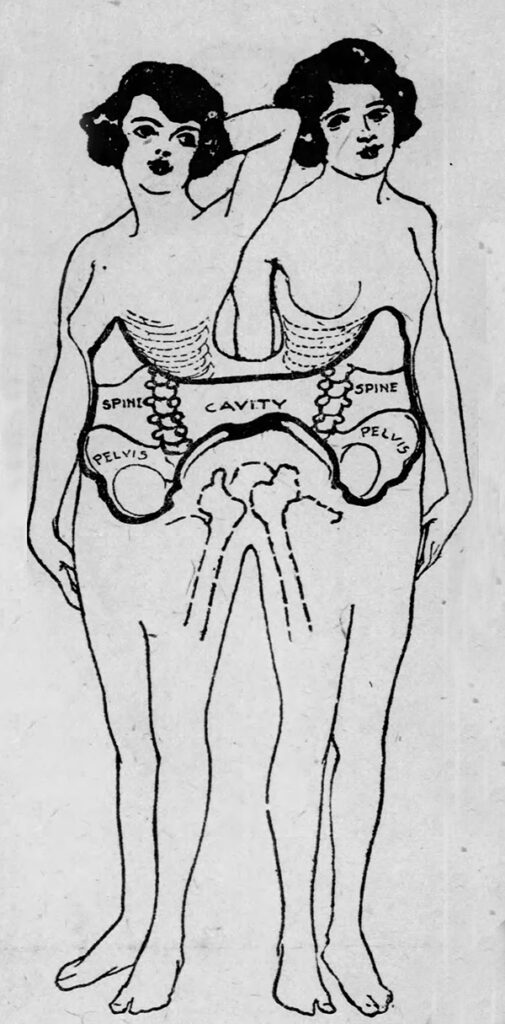
Josepha spent a week in a stupor, and it became evident to doctors (and Hodecker’s Ouija board) that she would die. Surgeons considered a separation, but Rosa had made it clear she did not wish to be divided in such a scenario.
“If Josepha dies, there is nothing for me to live for,” Rosa said.
The sisters reportedly left behind $200,000 and a large farm in Czechoslovakia to their heirs: one brother and their son, Franz.
This article includes an edited version of my entry for the Blazek Twins in my book, American Sideshow: An Encyclopedia of History’s Most Curious and Wondrously Strange Performers (Tarcher/Penguin).

